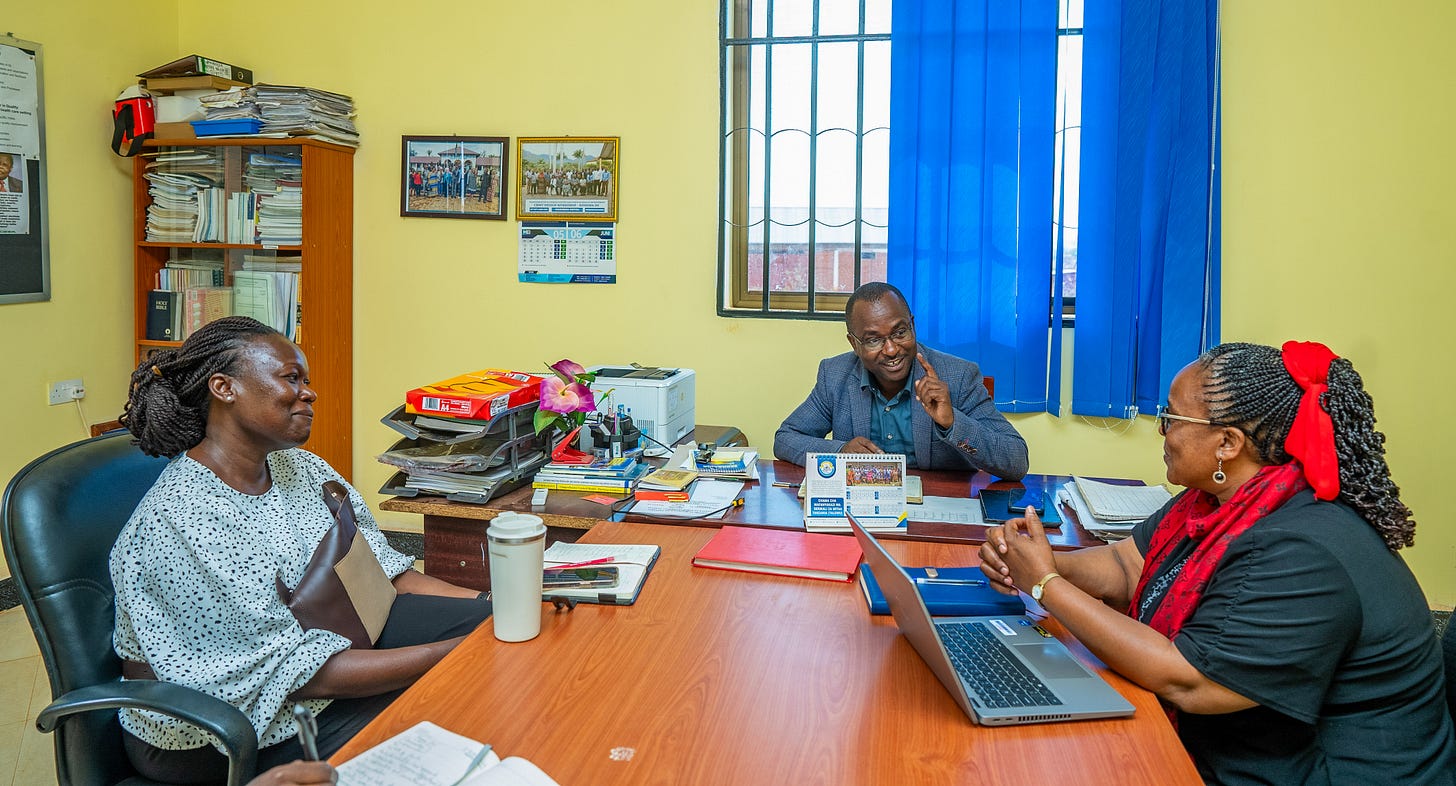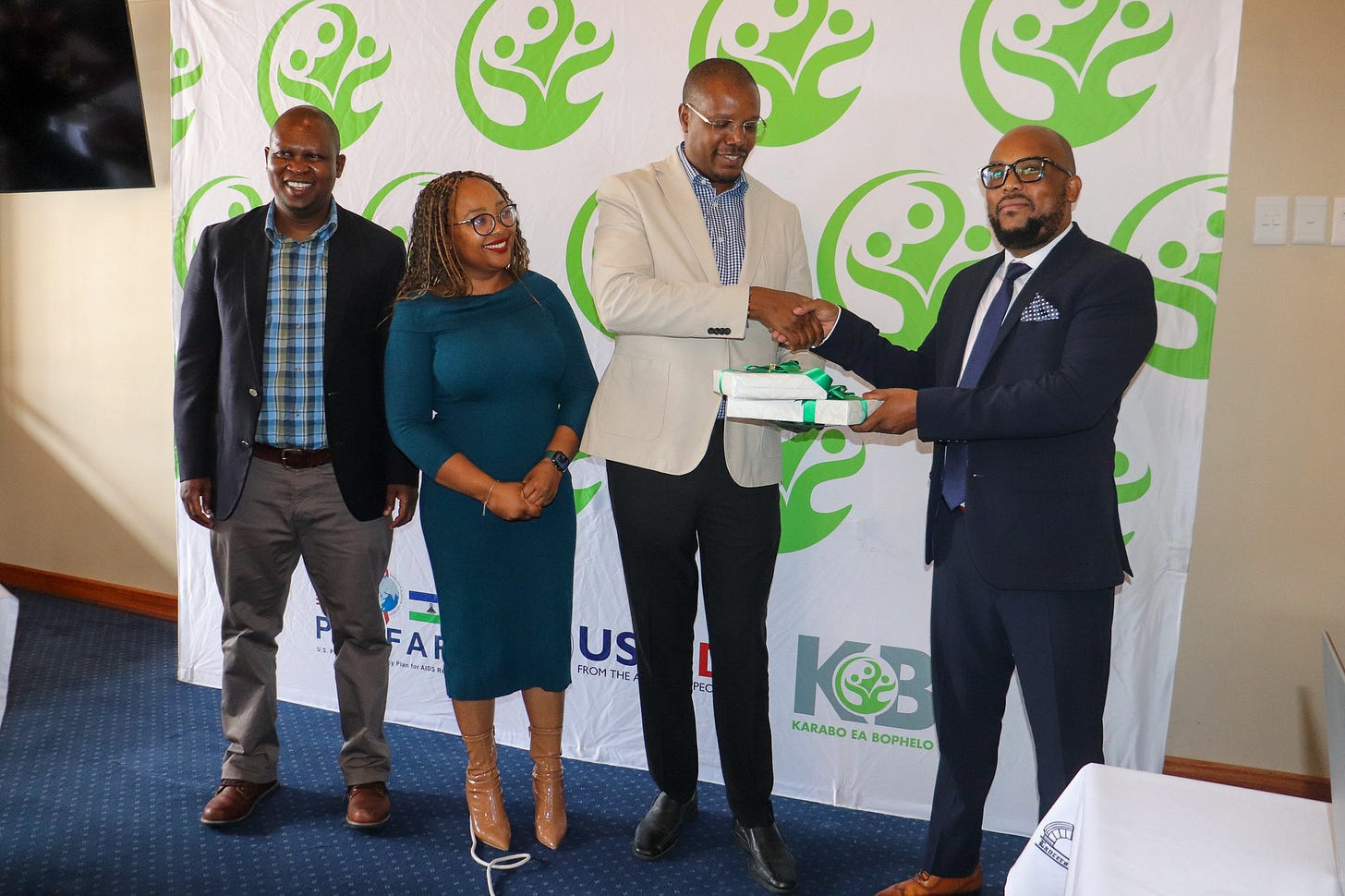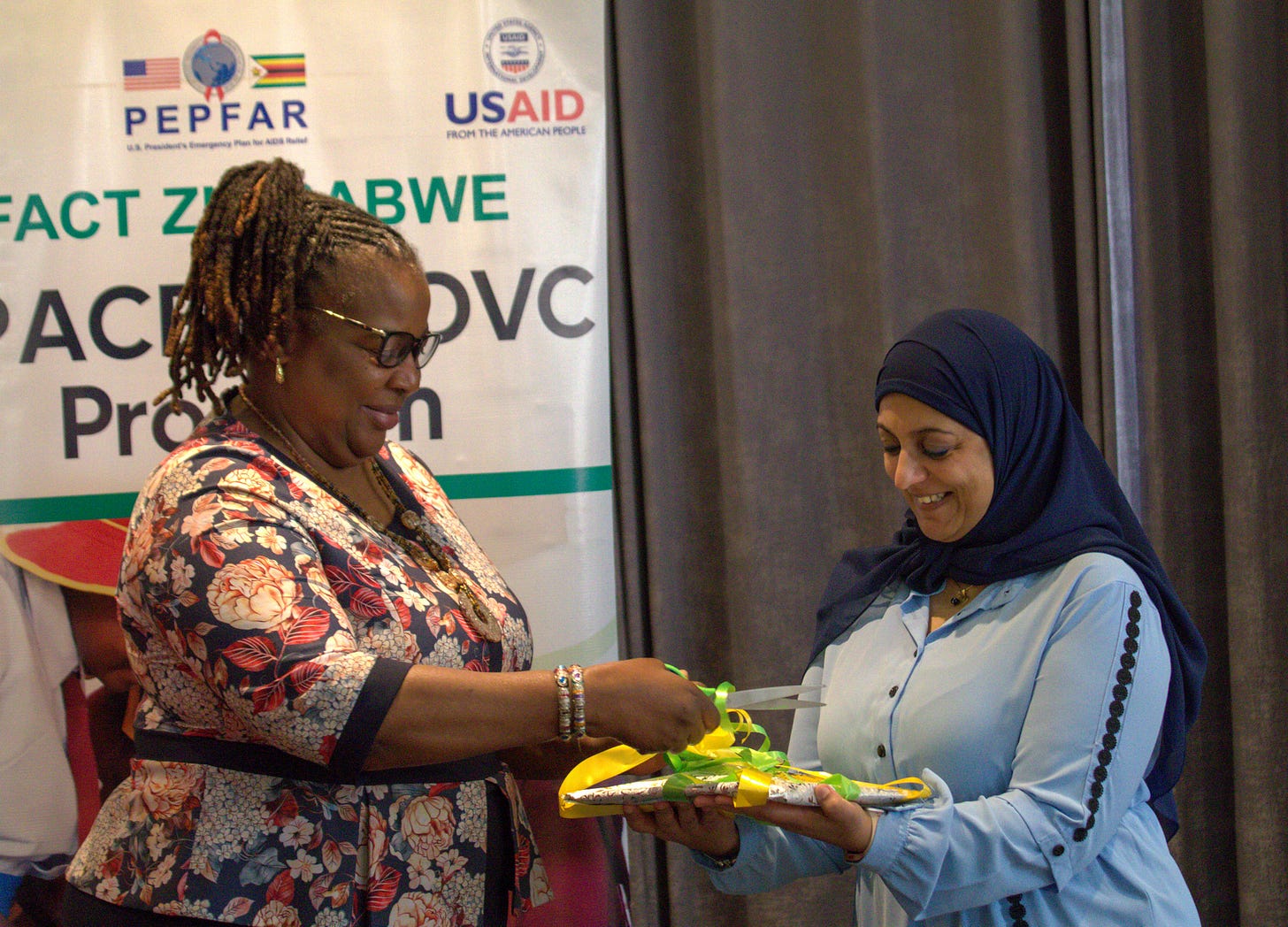Design, Implementation, Transition: How International Development Activities Can Ensure Sustainable Impact
By Michael Fernandez

Michael Fernandez is a rising senior at the University of Texas at Austin, with a double major in Economics and International Development. He is fluent in English, Spanish, and Swahili, and has extensive development experience in Tanzania. Michael interned with the Data.FI Project in the summer of 2024 as part of Palladium’s International Development Career Accelerator program.
Before joining Palladium’s International Development Career Accelerator program as an intern with the Data for Implementation (Data.FI) project, I had worked at nonprofits that discussed ‘sustainability’ in their success models as 'an activity’s ability to produce impact beyond the end of external funding,’ primarily involving the transition of implementation duties to a local partner. However, at Data.FI I was exposed to the entire activity lifecycle: from design to implementation and, ultimately, into transition. The more I learned about these moving parts, the clearer it became how project staff must consider an activity’s sustainability early and consistently to produce a successful transition.
From my perspective, transitioning an activity into the hands of local actors is analogous to setting goals and practicing habits designed to shape an enduringly healthy lifestyle. Growing up obese, I had many doctor's visits where I pondered all my life choices (or lack thereof) that led me to my physical state. In the same light, sustainability in international development activities requires thoughtful decision making, and project managers often look to tweak and better enhance their activities for the long-term.
Preparing for the end of external funding starts with the design phase—setting goals that center sustainability in an activity’s design. As the activity encounters new challenges and opportunities during its implementation, goals adapt and methods shift. And because a local partner is often involved from the start, the transition to full local ownership and management has the greatest chance of success.
To exemplify these phases in action, I highlight a unique country undergoing each respective phase; namely, Lesotho (for design), Botswana (for implementation), and Zimbabwe (for transition). In all three countries, Data.FI has led or is leading activities focusing on strengthening orphans and vulnerable children management information systems (OVC MIS). Supporting OVC MIS helps collect and analyze informative data on one of the most HIV-vulnerable populations, ensuring wider access to treatment and improving service delivery efficiency. Together, these countries demonstrate how activity-wide integration of sustainability enables the most prepared route for OVC MIS success.
DESIGN: How Lesotho Sets Goals and Builds Off Previous Innovations

At the start of any activity, it is important to set clearly defined goals that respond to the needs of the donor or client. During activity design in Lesotho, for instance, the Data.FI team was tasked with bolstering an existent country OVC MIS so that the Ministry of Gender, Youth, and Social Development could conduct more advanced data analytics. This meant crafting goals that aligned work with the features of Lesotho’s current system, and devoting resources to learning as much as possible about the years of previous research and implementation.
The team also embodied sustainable thinking by prioritizing learning from other OVC MIS activities at different phases of development from elsewhere in Western and Eastern Africa. Examining these activities’ journeys led to the conclusion that the work on Lesotho’s own OVC MIS should prioritize deduplicating data and standardizing operating procedures. Additionally, after noticing recent successes from their Data.FI colleagues in Eswatini (who used the same MIS platform as Lesotho: DHIS2), the Lesotho team planned to update their MIS data dashboards early on. And in consideration of recent technological developments not available to earlier OVC MIS activities, the team considered incorporating artificial intelligence (AI) to interpret their activity progress. But they didn’t risk all their efforts to this long-term objective when they already knew to prioritize short-term goals that could be reached, evident from previous activities.
In short, they didn’t try to reinvent the wheel; rather, the team identified patterns across previous activities from diverse regions to establish a broad foundation upon which to build — just like my health journey started with setting realistic goals based on researching successful fitness plans and getting advice from friends who had been working out for years.
Another critical factor in ensuring sustainability was involving local stakeholders. When Data.FI launched their Digital Health Technical Working Group (TWG) to advise on the Lesotho activity’s design, they invited both the Ministry of Health’s Permanent Secretary and Deputy Permanent Secretary to the TWG to view their showcase of regional initiatives. This was followed with regular updates and collaborative meetings to discuss activity priorities and key indicators of success.
Introducing these key government officials from the start not only gave them much needed context; it also established them as central collaborators working through every activity phase together in a team environment. This makes the activity’s journey Data.FI’s as much as it is our stakeholders’ — an attitude I aspire to when checking on my own friends’ health journeys.
IMPLEMENTATION: Botswana’s Informed Adjustments

Lesotho is still in the early phases, but eventually, after trial and error, an activity will need to adapt and adjust. This requires not only accepting where we are but evaluating how we have assessed our progress to get there. For example, Botswana found itself in the unexpected position of having to develop an OVC MIS from scratch. How they reacted to this obstacle demonstrates how a refined needs assessment and diverse stakeholder feedback inform activity adjustments.
After designing their initial activity, the team found that the government of Botswana did not have an existing system (like the government of Lesotho did). Even if this changed the overall activity timeline, the team viewed this as a potential opportunity to further develop the Ministry of Local Government’s sense of ownership for the upcoming OVC MIS.
Due to this change in expectations, the team needed more specific information to design appropriate solutions. This hadn’t been part of the plan, but the team moved quickly to confront a capacity deficiency and retool accordingly — just like a jogger might find themselves needing to upgrade shoes or buy a new headband as soon as the usual routine is no longer sufficient.
The perfect opportunity came when the team attended a five-day technical workshop about stakeholder alignment and implementation mechanisms with other Southern African OVC activities in November 2023. The Data.FI/Botswana team used the workshop to examine historical successes (like Lesotho had done in its design phase) but with more specific questions and needs in mind. After all, they had accustomed themselves to adapting their activity design, providing them with an enriched understanding of Botswana’s unique situation and the digital solutions that could work within it.
Later, during the following February, Data.FI facilitated a three-day workshop using the lessons learned in South Africa to complete a review of the Botswana OVC M&E framework, bringing together local IT officers, social workers, government officials, and civil society organizations.
Combining the high-level expertise gathered in South Africa with the localized participant feedback in Botswana ensured the best possible chance of a sustainably built OVC MIS. The February workshop not only informed Data.FI’s draft OVC indicator reference sheets, but also presented a realistic picture of how diverse stakeholders would interact once the activity ended. And in gathering feedback on specific questions and problems, the activity helped build buy-in from the partners whose vision and priorities would ultimately define the activity’s long-term sustainability.
TRANSITION: Zimbabwe’s Culminating Phase-out

Zimbabwe clearly illustrates how activities can fully transition to governments or local organizations’ hands when a team prioritizes sustainability from the beginning. Just as sticking to our health goals consistently makes it easier to maintain a healthful lifestyle, preparation done in the design and implementation phases immensely benefits an activity transition.
FACT, a Zimbabwean AIDS service organization that participated in the activity’s design and implementation, is now carrying on Data.FI’s four years of work.
Because the activity design incorporated implementing partners (IPs) like FACT, the team became more aware of which components each IP already had in their user systems. From there, the team could more accurately advise each IP involved on what skillsets they could hone.
As the team held numerous work sessions with IPs to better familiarize them with newer technologies, momentum grew. The team adapted to the IPs’ pace by documenting their modifications so that they could predict a more realistic deadline.
As the Zimbabwe activity anticipated determining the primary IP for the transition, they developed a useful process to understand their IPs’ engagement and MIS’ workability. As Data.FI conducted and shared performance reviews on the IPs’ work, there were two different outcomes: An IP recognized how they could improve, or the IP identified a mistake in how the OVC MIS reflected their progress. In relation to my journey losing weight, if someone commented on the progress of my weight loss, they would have shared a new fitness tip with me, or I would have remarked on what I have already done regardless of what I look like.
To recognize that the previous phases (design and implementation) prepare for overall activity transition is not to understate the bumpy roads to make transition possible. However, the consistent strengthening to ensure that IPs understand the full grasp of owning a MIS provides for a smooth, resilient transition into local hands.
What Next? The Phase Ahead
I worry about the sustainability of the sustainability conversation.
I used to think that losing weight only mattered for the daunting annual doctor’s visit, not for my future personal health. As the development space continues to put 'sustainability’ at the forefront, I am concerned that sustainability might become a buzzword that loses the essence of its importance.
This buzzword phenomenon also applies to ‘localization’, which is connected to this lens of sustainability. Yet, even among OVC MIS activities between three Southern African countries, their strategies to develop local relationships vary because the path for sustainability must accommodate each partner involved. Just as every individual’s health journey is unique to their body and circumstances, international development activities also differ based on a country’s unique background and context.
Still, we can say that Data.FI’s work has made it crystal clear that sustainability must be included in every aspect of an activity. Moreover, if done right this can have a transformative impact on how activities are planned, run, and closed. That’s why I hope every project or organization in this space will continue to work sustainably, not just as a box to tick but as a guiding principle.
That means making use of the resources already available and initiating long-lasting stakeholder relationships from the start. It means constantly assessing how changes in the activity’s progress reflect the need to change an activity’s design and being flexible enough to carry out these adjustments. And it means remaining consistent so that the eventual transition is long-expected and planned for.
Lastly, just like aspiring people trying to look after their health, we should all embrace the rocky bumps that we know will come along the way, and always wonder how we can do better.


